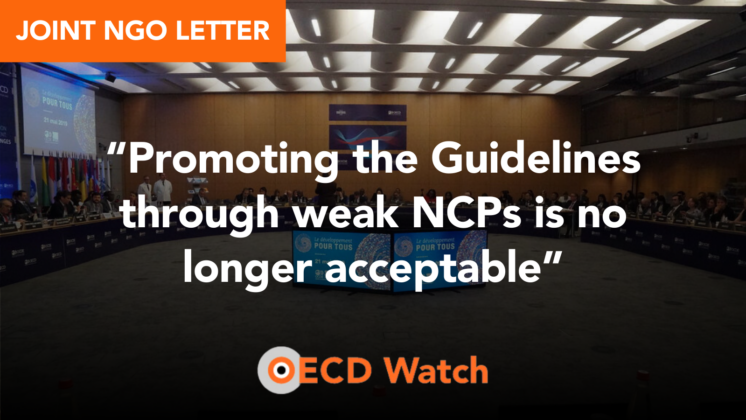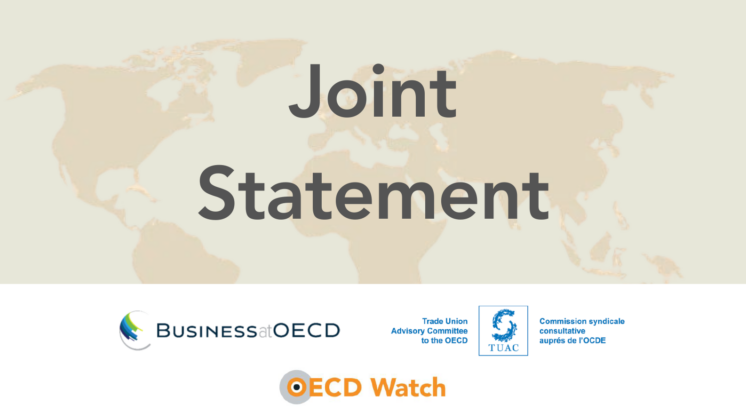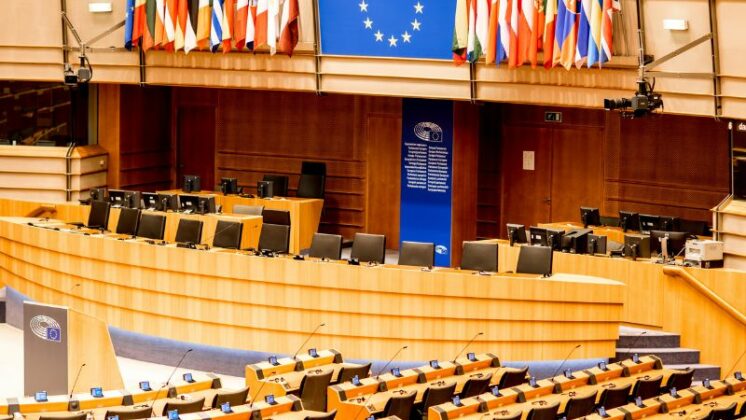Norwegian civil society organisations are disappointed that the Norwegian government decided not to renew Professor Hans Petter Graver’s mandate as head of the Norwegian National Contact Point (NCP) for the OECD Guidelines. Norwegian civil society organisations believe this decision involves a serious deterioration of the NCP’s independence and is a result of Professor Graver’s criticism of the Norges Bank Investment Management ‘s (NBIM) poor handling of human rights violations by the companies they invest in.
After the Norwegian NCP restructured and the OECD Guidelines were updated in 2011, the NCP’s mandate includes handling specific instances against Norwegian companies and financial institutions that are alleged to act contrary to the recommendations for responsible business conduct by the OECD’s member states and adhering countries. After Hans Petter Graver was nominated as a member and later appointed as head of the restructured NCP by the Norwegian Government, he has very actively promoted the OECD Guidelines and has done an outstanding job in strengthening the functioning of the Norwegian NCP. When the Norwegian NCP underwent peer review in 2014, the NCP was evaluated positively by its fellow NCP, as well as all its stakeholders. Internationally the Norwegian NCP is still being considered a leading example.
Despite the positive assessment and general satisfaction with the NCP’s current functioning, the Norwegian government decided not to renew Professor Graver’s term as head of the NCP. Norwegian civil society organisations, together with OECD Watch, now question whether this decision is a reaction from the Norwegian Government to the NCP’s critical position towards the Norwegian Pension Fund’s lack of strategy when it comes to dealing with human rights violations by the companies they invest in.
Adverse human rights impacts
In 2012 an international coalition of NGOs filed a complaint against Korean Steel giant POSCO, alleging the company failed to conduct comprehensive human rights and environmental studies for its proposed iron mine, steel plant and associated infrastructure in the State of Odisha, India. Complainants also called for the Dutch pension fund ABP and the Norwegian Government Pension Fund – Global to use their leverage to prevent or mitigate adverse human rights impacts they are directly linked with through their financial relationships with POSCO.
After NBIM, which is managing the pension fund’s investments, refused to engage with the NCP, the NCP issued its strong final statement on the case and concluded pension fund violated the OECD Guidelines for refusing to cooperate with the NCP, and for lacking a strategy on how to address human rights risks related to companies in which it invests. In response, the Norwegian Government unsuccessfully attempted to create exceptions for the pension fund by arguing the OECD Guidelines do not apply to state-owned enterprises.
There are currently two other complaints alleging human rights violations by companies the pension fund invests in awaiting an initial assessment by the Norwegian NCP. By deciding to end Professor Graver’s affiliation with the NCP, it may look as if the Norwegian Government prefers not to face these issues and does not appreciate an independent NCP. Whether or not the actions of the Norwegian government are indeed a deliberate attempt to mute criticism on NBIM, they do put the credibility of the OECD Guidelines at risk. Given that the effectiveness of the OECD Guidelines can already be called into question, maintaining the independence of NCPs is crucial for effectively promoting responsible business conduct.














